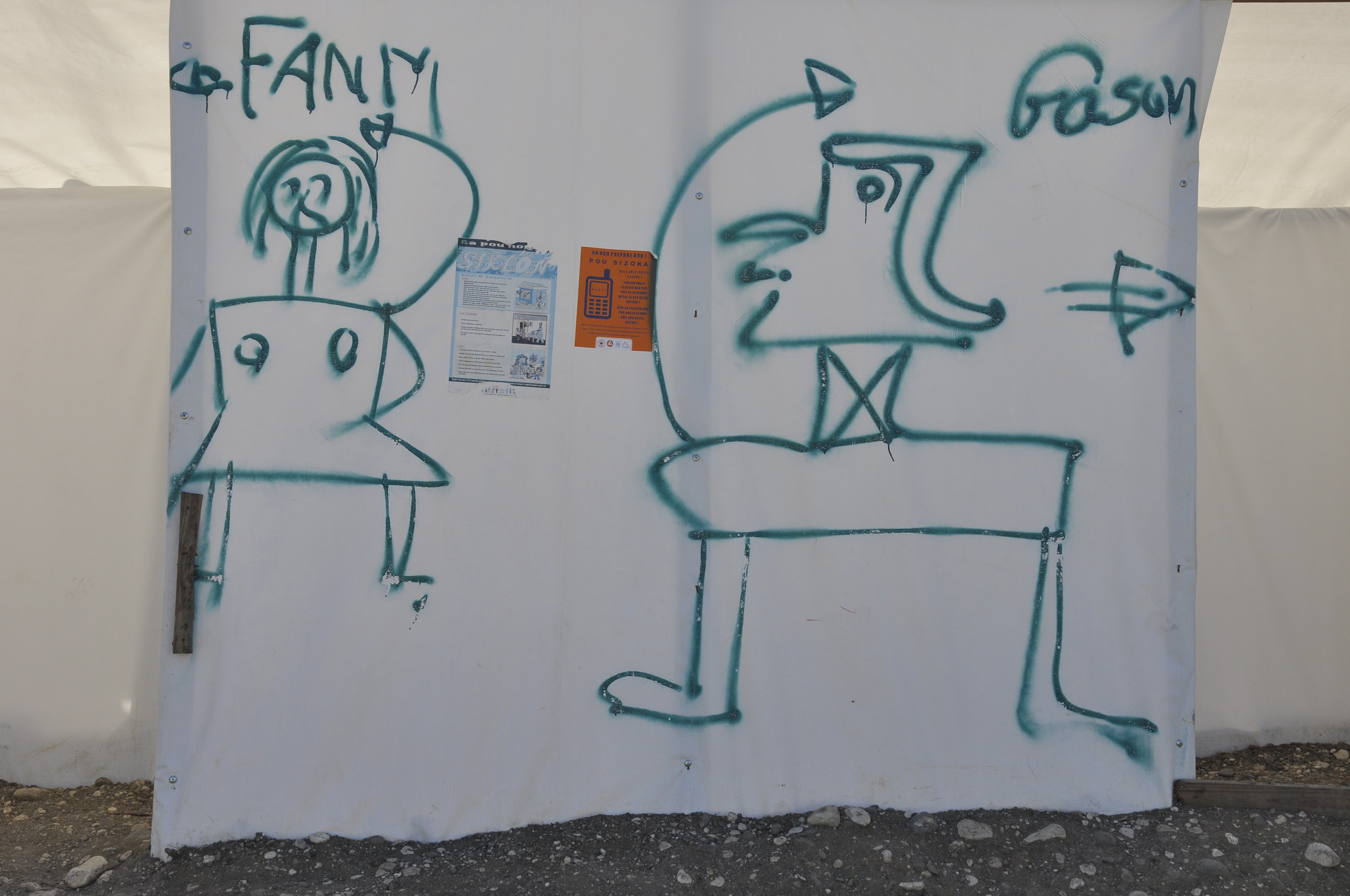What’s in a toilet? Way more than you thought.
 Latrine installed by Oxfam near Kathmandu, Nepal, after the April 2015 earthquake. Two thirds of the houses in this village were destroyed. Oxfam delivered water storage tanks, toilets, and hygiene kits to help people avoid water-borne diseases. In total, Oxfam estimates it built nearly 8,000 latrines in Nepal over the last six months. Photo: Sam Tarling/Oxfam
Latrine installed by Oxfam near Kathmandu, Nepal, after the April 2015 earthquake. Two thirds of the houses in this village were destroyed. Oxfam delivered water storage tanks, toilets, and hygiene kits to help people avoid water-borne diseases. In total, Oxfam estimates it built nearly 8,000 latrines in Nepal over the last six months. Photo: Sam Tarling/Oxfam
How toilets fight poverty, and what you can do to help get them to the people who need them.
The momentous day is nearly here: World Toilet Day is November 19 so we are turning our thoughts to this crucial facility because toilets are an essential weapon for fighting poverty. The UN estimates that 2.4 billion people lack proper toilets, and lack of proper sanitation is a major public health and human rights issue for poor people. Here are five facts about why toilets are important and what Oxfam and others are doing to get them to the people who need them.
1. Toilets save lives
I once spent a day in the middle of a cholera epidemic in Haiti walking around the countryside with a public health promoter who basically screamed at everyone she saw “Evitez fair la toilette sur la terre!” (“Don’t go to the bathroom on the ground!”) Other Oxfam staff in the area were building latrines and helping people purify drinking water as part of our effort to stop cholera. But even in times when there is no serious disease outbreak, lack of proper sanitation kills. Nearly 315,000 children die every year from diarrheal diseases linked to a lack of safe water, sanitation and basic hygiene. In communities where there are few sources of clean water, a safe sanitation system is an essential means to reduce contamination of drinking water with human waste. This reduces the risk of diarrheal diseases, one of the leading killers of children. “Raising service levels to safe and continuous water supply and connection to a sewerage system, protecting entire communities from fecal exposure, could significantly reduce diarrheal diseases up to 70 percent,” declares the Global Analysis and Assessment of Sanitation and Drinking-Water (GLAAS), published by UN-Water.

2. Toilets are a good investment
Investing in proper sanitation saves communities and governments millions because they are less likely to have to respond to crises like cholera epidemics. The World Health Organization states that every dollar invested in “drinking water, sanitation, hygiene, and water resource management…leads to up to eight dollars in benefits.” At the household level, one of the biggest drains on finances is health care, so keeping people (especially young children) healthy helps poor families save money too.

3. Toilets fight for the rights of women and girls
Helping families and communities have decent toilets reduces the risk of sexual assault on women who have to go out in the open at night. Want to fight for the rights of women to basic dignity and safety? Think toilets. Want to decrease the school drop-out rate for adolescent girls? Girls are less inclined to attend schools without proper facilities, especially when they have their periods. Separate facilities for girls can make a difference.
4. Toilets can be innovative
In many of the crowded slums in Port-au-Prince before the 2010 earthquake people would collect their waste in a plastic bag and fling it away (the “flying toilet” technique, sadly quite common around the world). In the weeks following the earthquake when Oxfam and others were working to install temporary latrines, we tested something called a “PeePoo” bag that would help survivors with a biodegradable container they could dispose properly with solid waste.
Lack of toilets is a chronic problem in many places, such as the West Point district of Monrovia, Liberia, where an Ebola outbreak in 2014 caused so much suffering. Oxfam and others have been testing a composting toilet that uses tiger worms (they actually eat solid and liquid human waste) in West Point and other parts of Liberia. In Pikine, outside Dakar, Senegal, Oxfam is collaborating with the city government to develop low-cost market-based solutions to problems related to poor sanitation in a flood-prone district. Tiger worm composting toilets and other on-site treatment systems may be an option for areas like this where a proper piped sanitation system leading to a central waste-water treatments center is unlikely in the near future. Oxfam is researching the best options, and surveying residents of Pikine to find out what they would be willing to use, and what they can afford.
5. You can help bring toilets to the people!
Now that you know all this great stuff about toilets you can help us make sure disaster survivors and refugees fleeing violence have access to a toilet. That’s right, you can give a potty as a present at oxfamgifts.com.
![WTD_M+R_640x350[4]](https://s3.amazonaws.com/blog.oxfamamerica.org/firstperson/2015/11/WTD_MR_640x3504-610x334.jpg)